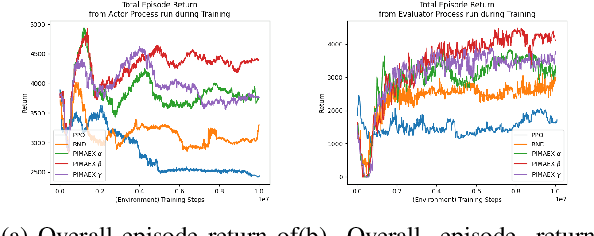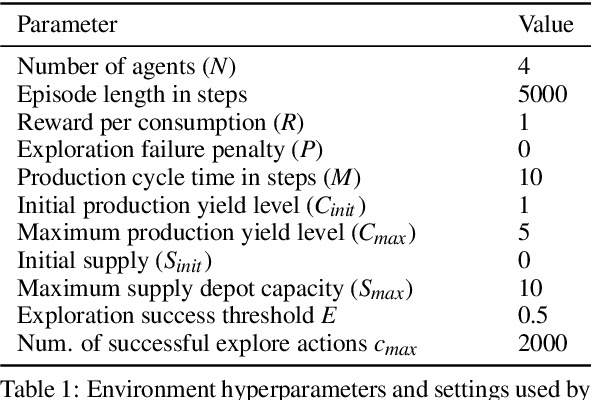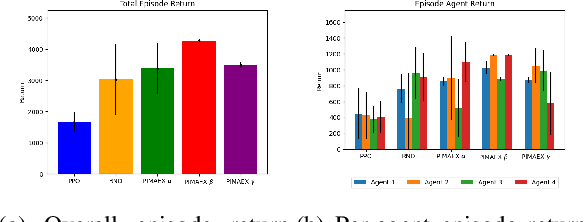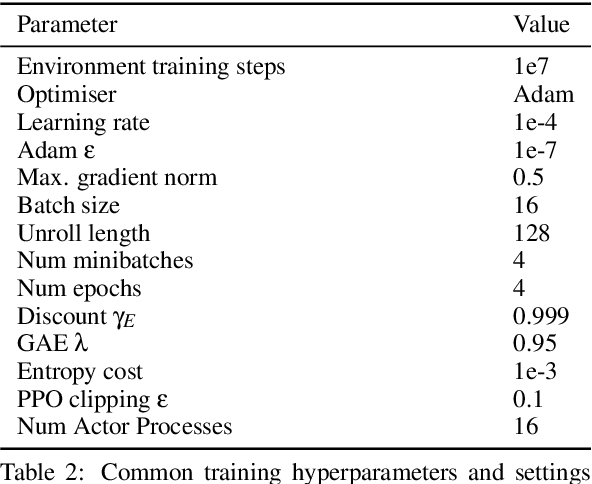Johannes Tochtermann
PIMAEX: Multi-Agent Exploration through Peer Incentivization
Jan 02, 2025



Abstract:While exploration in single-agent reinforcement learning has been studied extensively in recent years, considerably less work has focused on its counterpart in multi-agent reinforcement learning. To address this issue, this work proposes a peer-incentivized reward function inspired by previous research on intrinsic curiosity and influence-based rewards. The \textit{PIMAEX} reward, short for Peer-Incentivized Multi-Agent Exploration, aims to improve exploration in the multi-agent setting by encouraging agents to exert influence over each other to increase the likelihood of encountering novel states. We evaluate the \textit{PIMAEX} reward in conjunction with \textit{PIMAEX-Communication}, a multi-agent training algorithm that employs a communication channel for agents to influence one another. The evaluation is conducted in the \textit{Consume/Explore} environment, a partially observable environment with deceptive rewards, specifically designed to challenge the exploration vs.\ exploitation dilemma and the credit-assignment problem. The results empirically demonstrate that agents using the \textit{PIMAEX} reward with \textit{PIMAEX-Communication} outperform those that do not.
Stochastic Market Games
Jul 19, 2022



Abstract:Some of the most relevant future applications of multi-agent systems like autonomous driving or factories as a service display mixed-motive scenarios, where agents might have conflicting goals. In these settings agents are likely to learn undesirable outcomes in terms of cooperation under independent learning, such as overly greedy behavior. Motivated from real world societies, in this work we propose to utilize market forces to provide incentives for agents to become cooperative. As demonstrated in an iterated version of the Prisoner's Dilemma, the proposed market formulation can change the dynamics of the game to consistently learn cooperative policies. Further we evaluate our approach in spatially and temporally extended settings for varying numbers of agents. We empirically find that the presence of markets can improve both the overall result and agent individual returns via their trading activities.
 Add to Chrome
Add to Chrome Add to Firefox
Add to Firefox Add to Edge
Add to Edge